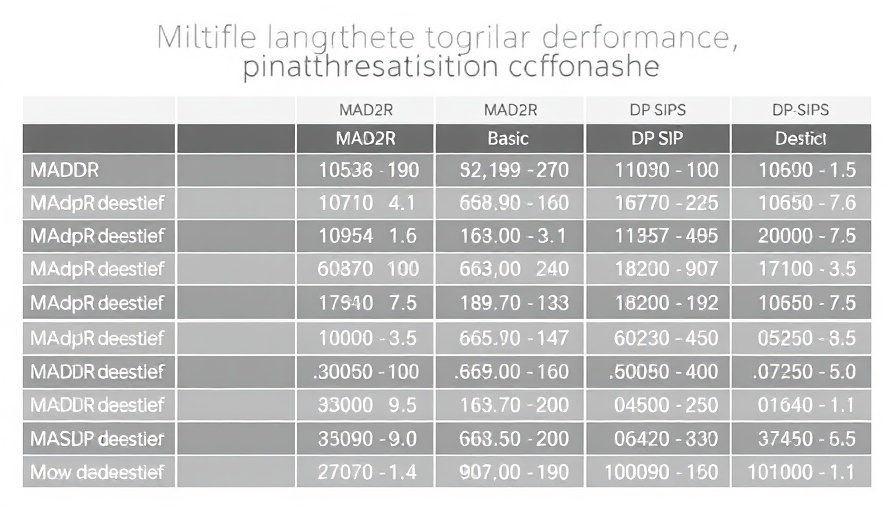
Unlocking New Possibilities with Differential Privacy
Differential Privacy (DP) has emerged as a crucial standard in safeguarding user data, particularly in the realms of machine learning and data analytics. In essence, DP aims to allow researchers and businesses to analyze data while ensuring that individual contributions remain confidential. This concept is foundational for small and medium-sized businesses (SMBs) that rely on data-driven insights while being responsible stewards of user privacy.
Understanding Partition Selection in Data Privacy
At the heart of DP lies partition selection, which revolves around the challenge of maximizing the number of unique data items extracted from large datasets without compromising individual privacy. Researchers from Google AI and MIT have recently advanced this field by proposing innovative algorithms tailored for partition selection. These new algorithms enable greater accuracy in revealing distinct items from datasets while adhering to stringent privacy standards.
Challenges with Traditional Methods
Historically, partition selection methods have employed a three-step approach involving weighting, noise addition, and thresholding. While effective, these techniques come with downsides:
- Weighting: Items were assigned scores based on user frequency, but this led to overrepresenting popular items at the cost of potentially valuable but less common data.
- Noise Addition: Adding random noise to user data obscured precise contributions, but could also dilute meaningful signals.
- Thresholding: Only those items that surpassed computational thresholds would be revealed, leading to a loss of valuable insights.
For small and medium-sized businesses, understanding these inefficiencies is vital as they navigate the complexities of data analytics while prioritizing consumer privacy.
A New Era with the MaxAdaptiveDegree Algorithm
The introduction of the MaxAdaptiveDegree (MAD) algorithm marks a significant advancement. This groundbreaking adaptive algorithm redirects excess weight from popular items to boost the visibility of lesser-known but important items. This method not only enhances data utility but aligns with the need for SMBs to leverage insights from diverse data sources.
Future Predictions: What This Means for Businesses
As differentially private algorithms like MAD gain traction, businesses can expect a paradigm shift in data utilization. Companies can now gain deeper insights without jeopardizing user trust. As a result, securing data privacy could drive customer loyalty and enhance brand reputation—key to small and medium-sized enterprises aiming to thrive in competitive markets.
Practical Insights and Strategies for Implementing DP
For SMBs looking to implement these advanced algorithms, here are some actionable tips:
- Invest in Training: Equip your team with knowledge about differential privacy and its implications for data analysis.
- Utilize Tools: Leverage existing libraries and toolkits that support differential privacy, like Google's differential privacy toolkit.
- Engage Users: Clearly communicate to your users how their data will be used and the measures in place to protect their privacy.
By adopting these strategies, small and medium-sized businesses can proactively navigate the data landscape while respecting user privacy.
The Emotional Impact of Privacy on Users
Understanding the emotional weight of privacy concerns cannot be overstated. For many users, sharing their data comes with anxiety about its security and potential misuse. By implementing models like those proposed by Google AI, businesses are not only protecting data but also fostering a sense of trust and security among their user base, ultimately enhancing customer relationships.
Embracing the Future of Data Privacy
As technology progresses, the intersection of data analytics and privacy will continue to evolve. Businesses that proactively engage with these challenges will not only safeguard their users but will also drive their growth and innovation. This is especially pertinent for SMBs, where leveraging reliable insights can mean the difference between remaining competitive and being left behind.
We encourage you to stay informed about advancements in differential privacy and explore ways your business can implement these insights. Taking proactive steps now will ensure you are prepared for the future of privacy-focused data analytics.
 Add Row
Add Row  Add
Add 



Write A Comment